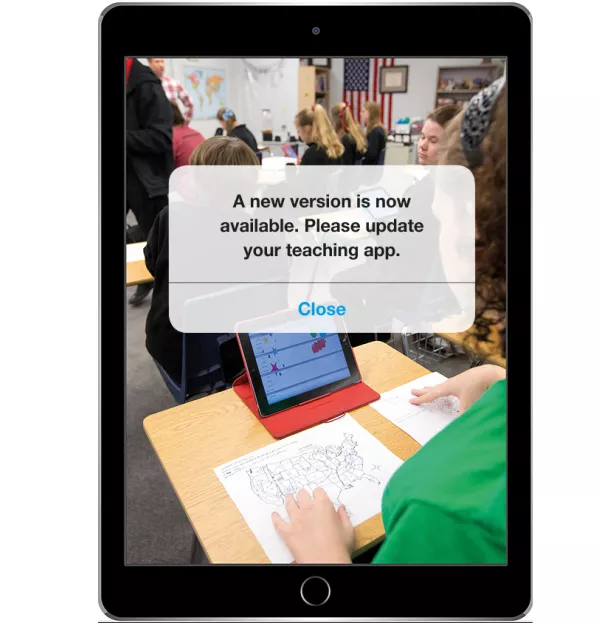If you want to know why research cannot give us much of a hand when it comes to education technology, think back to the tech that was available when you were at school. Even for our youngest teachers, that tech is probably now looking pretty ancient compared to what is out there at the moment.
Technology moves so quickly. Usually, a device or app has been updated or changed before researchers have even asked a question. And longitudinal data is very difficult when the tech in question keeps being replaced by something new.
So, what are teachers to do? Well, we can instead dig into the research evidence on which useful principles can help us judge new technology for ourselves.
A simple starting point is to have a clear theory for how technology improves learning. Indeed, it is the first recommendation of the Education Endowment Foundation, in their guidance report on Using Digital Technology to Improve Learning. It sounds obvious, but too often it is neglected.
Take, for instance, the proposed rollout of 52,000 iPads in Glasgow as part of a massive £300 million deal with Glasgow City Council. With nearly 5,000 iPads handed to teachers, and each pupil gaining their own iPad, what should have been asked is: how will this positively impact on teaching and learning?
What would have been found is that mass rollouts of new technology have always been beset by controversy and failure. Common barriers to improvement include: teachers gaining insufficient training to really shift how they teach; and new apps and programmes failing to mesh with existing practices or match curriculum challenges. Pupils invariably don’t learn more because they have a device - in fact, they may learn less.
Knowing all this, we should be sceptical of any mass rollout of tech: helping teachers to change their practice is hard, so doing it at such a scale is always likely to stall. Even deploying new technology across a single school should be implemented with extreme care and attention to necessary support factors.
Instead of grand plans, we should probably scale down our ambitions and aim for precise deployment with a clear rationale for improving learning.
For example, an online programme with excellent results is Abracadabra (ABRA). This online programme is highly targeted on age-appropriate phonics, fluency and reading comprehension activities. The programme is led by specially trained teaching assistants.
We can see in the Abracadabra example that there are ingredients to help ensure technology is more likely to benefit pupils. The principles could be distilled as follows:
- Programmes, apps etc need to address specific learning needs.
- Teachers, or TAs, need to receive high-quality, ongoing training.
- Thought needs to be applied to how the technology will be integrated into existing practice and school systems.
So, while it is unlikely that we can get robust research to reliably referee the edtech debate on a product-by-product basis, we can use research to make best guesses about what should or could work. Listening to this research should mean we avoid the perils of the past and stay sceptical, start small and attend to the learning of pupils and teachers.
Alex Quigley is the national content manager at the Education Endowment Foundation. He is a former teacher and the author of Closing the Vocabulary Gap
This article originally appeared in the 6 December 2019 issue under the headline “Think iPads will improve learning? Don’t tech it for granted”

